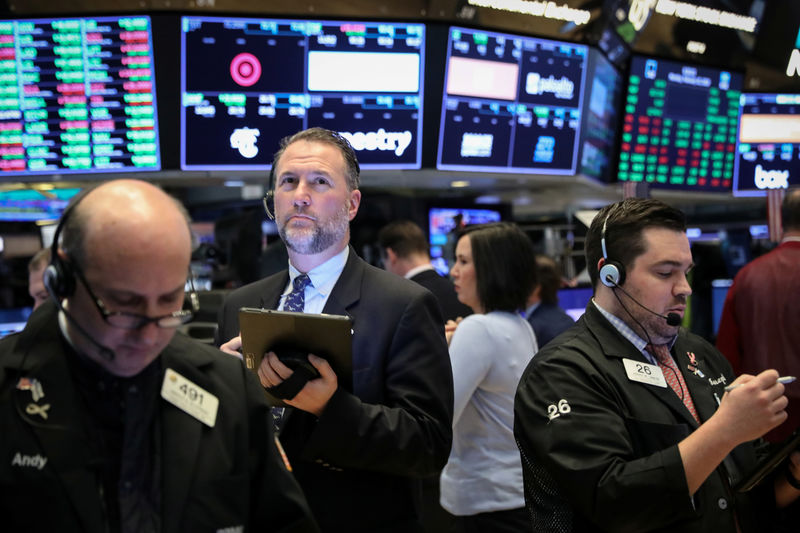Investing.com - Markets are regaining some poise following sharp moves overnight after Iran's attack on U.S.-led forces in Iraq fueled fears that the strikes would lead to an escalation in the standoff between Washington and Tehran. U.S. stock futures are pointing to a higher open on Wall Street, but Dow futures are weighed down by a drop in shares of Boeing (NYSE:BA) in the wake of another deadly plane crash. Oil prices have trimmed back overnight gains but remain higher, while gold is holding near new seven-year highs. Here’s what you need to know to start your day.
- Markets shrug off U.S.- Iran tensions
Market jitters eased on Wednesday following frenzied early trading after a rocket attack by Iran on U.S. forces in Iraq raised the specter of a spiraling Middle East conflict.
Hopes grew the U.S. would stop short of strong retaliation after U.S. President Donald Trump tweeted "All is well!", and "So far, so good!".
Iran's Foreign Minister Mohammad Javad Zarif also tweeted that the Iranians "do not seek escalation or war".
Iran's missile attack came early on Wednesday, hours after the funeral of an Iranian commander who was killed by a U.S. drone strike last week.
- U.S. futures regain ground, but Boeing crash weighs on Dow
U.S. stock futures clawed back their early steep losses, with the S&P 500 futures contract rising 10 points, or 0.3% by 7:30 AM ET (11:30 GMT), while Nasdaq 100 futures rose a similar amount. But Dow futures struggled to make headway, weighed down by a drop in shares of Dow component Boeing (NYSE:BA) in premarket trade.
Boeing shares were hit by news that a Ukraine International Airlines Boeing (NYSE:BA) 737 airliner burst into flames shortly after take-off from Tehran on Wednesday, killing all 176 people aboard in a crash that an initial report blamed on engine failure.
A spokesman for the manufacturer said it was gathering more information.
The 737 does not have the software feature implicated in crashes of the 737 MAX. Boeing grounded its 737 MAX fleet in March after two crashes that killed 346 people.
- Safe-haven demand wanes
Investor demand for safe haven assets waned as the knee jerk reaction in markets to the Iran strikes unwound. Gold which earlier brushed through $1,600 an ounce, eased to $1,582.
The yield on benchmark 10-year U.S. Treasury notes stood at 1.7951%, down from a U.S. close of 1.825% on Tuesday, but well off session lows around 1.705%.
On currency markets, the attacks had sent the yen spiraling to three-month highs beyond 107.7 per dollar but gave up all those gains to trade flat at 108.4. Another safe-haven currency, the Swiss franc, also gave up gains.
- Oil pares gains, inventory data awaited
Oil prices were higher but gave up most of their early gains as fears over the prospect of supply disruptions in the Middle East receded.
Global benchmark Brent crude was up 56 cents to $68.84 by 7:30 AM ET (11:30 GMT), after earlier rising to their highest level since mid-September 2019 at $71.75.
U.S. crude futures were last at $62.97, having earlier hit $65.85, the highest since late April last year.
The Energy Information Administration is expected to report a drop of about 3.6 million barrels when it issues official stockpile numbers at 10:30 AM ET (13:30 GMT), according to analysts’ forecasts compiled by Investing.com.
- Private sector hiring data ahead
ADP) employment figures are due out at 9:15 AM ET (14:15 GMT) ahead of Friday’s closely watched government nonfarm payrolls report for December.
Economists are predicting a rise of 160,000 in payrolls for the month, up from the tepid rise of 67,000 seen in November.
The market is looking for about the same rise for nonfarm payrolls when the Labor Department weighs in with official figures.
--Reuters contributed to this report
